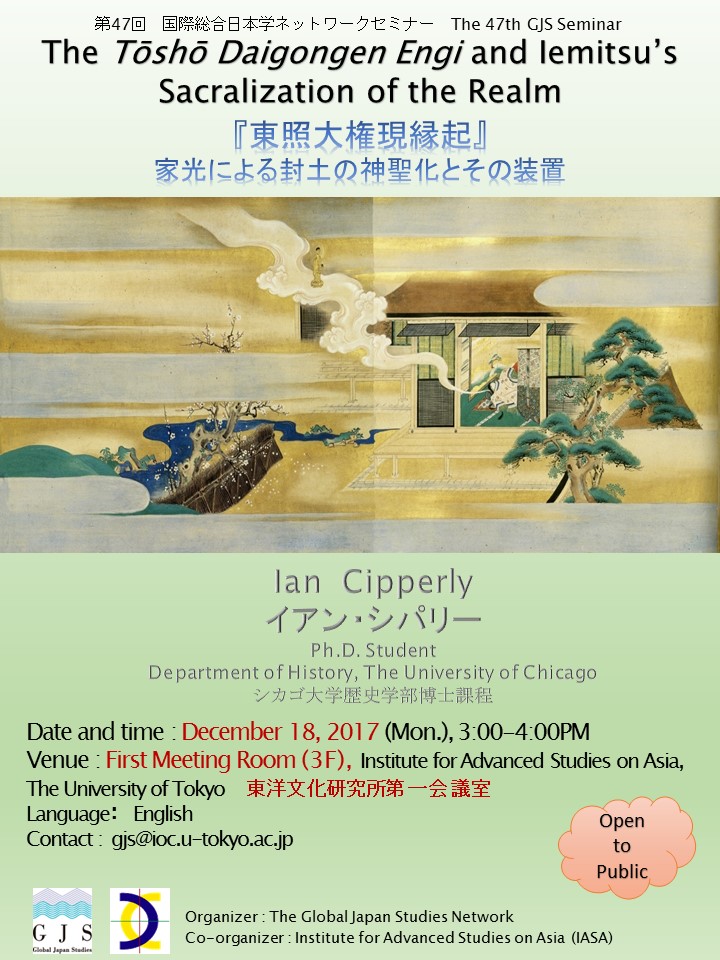News
第47回GJSセミナー「『東照大権現縁起』――家光による封土の神聖化とその装置」のお知らせ
日時:2017年12月18日(月)15:00~16:00
会場:東京大学東洋文化研究所 第一会議室(3階)
発表者:イアン シパリー(シカゴ大学歴史学部博士課程)
使用言語:英語
発表概要:
Nikko Tōshōgū was a central tool utilized by the Tokugawa bakufu to initiate what Althusser has referred to as the shift from repressive to ideological sovereignty. By placing authority in the sacred, Tokugawa Iemitsu sought a source of legitimacy unassailable by mortal men. Employing tools such as the Tōshō Daigongen Engi, religion, literature, and visual culture were brought to bear in the attempt to establish a nomos, or meaningful order, through the sacralization of the realm. This reintroduction of the Tōshō Daigongen Engi explicates the methods of production, religious claims, and visual and literary rhetorical devices employed under Iemitsu’s supervision in his quest to solidify bakufu authority through the divinity of his grandfather, Ieyasu.
主催:東京大学国際総合日本学ネットワーク(GJS)
共催:東京大学東洋文化研究所(ISAS)
問い合わせ:gjs[at]ioc.u-tokyo.ac.jp(送信時には[at]を@に置き換えてください)
登録種別:研究会関連
登録日時:WedNov1514:25:542017
登録者 :gjs事務局・田川
掲載期間:20171115 - 20171218
当日期間:20171218 - 20171218


